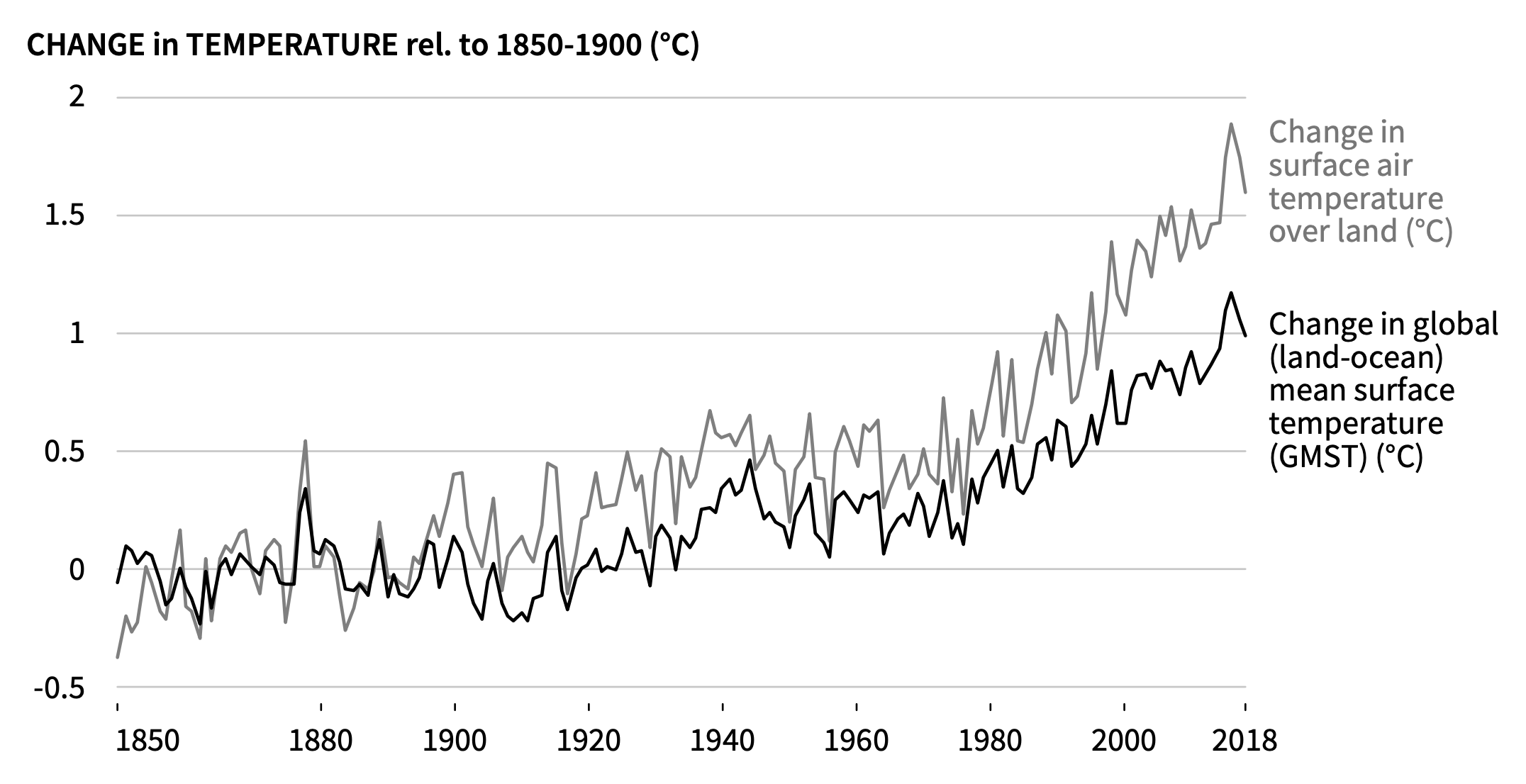EU climate change report 2019
Intergovernmental Panel on Climate Change (IPCC) has released the first comprehensive look at how land influences climate change, and vice versa.
With the recent release of the climate change report from the Intergovernmental Panel on Climate Change (IPCC) we are able to understand the impact agriculture is having and could have on our environment. The food industry itself accounts for up to a third of our global greenhouse gas emissions according to the IPCC Co-Chair Eduardo Calvo Buendía.
It is shown that one of the largest impacts on our environment is from animal agriculture through its use of natural resources and production and emission of greenhouse gases. Methane production from livestock has increased, with a jump of over 11% higher than estimated in 2011, due to a larger number of people consuming meat and dairy products as well as selective breeding causing larger animals and herds.

One potential course of action to decrease the excessive production of greenhouse gases is for people to switch towards a more plant based diet and cutting back on our need for meat and dairy.
Balanced diets, featuring plant-based foods, such as those based on coarse grains, legumes, fruits and vegetables, nuts and seeds, and animal-sourced food produced in resilient, sustainable and low-[greenhouse gas] emission systems, present major opportunities for adaptation and mitigation while generating significant co-benefits in terms of human health.
With a switch to the production of plant-based foods means that precision agriculture is going to become more and more important. Precision agriculture is a “concept based on observing, measuring and responding to inter and intra-field variability in crops” that is now being backed-up with advances in technology to increase returns on inputs as well as preserving resources.
GPS and aerial or satellite imagery plays a major roll in precision agriculture but there is also an ongoing need to monitor crops and equipment constantly. It is predicted that by 2050 world growers are expected to be producing 70% more food; one of the easiest way is to cut down on the over 25% of all food ending up as waste. Monitoring for the correct temperatures, humidity and water conditions on a farm can drastically cut down excessive waste as well as increase quality of the final product.
Get in touch with Spook
Please contact us if you wish for further information on how Spook can help with your environmental and power monitoring needs.